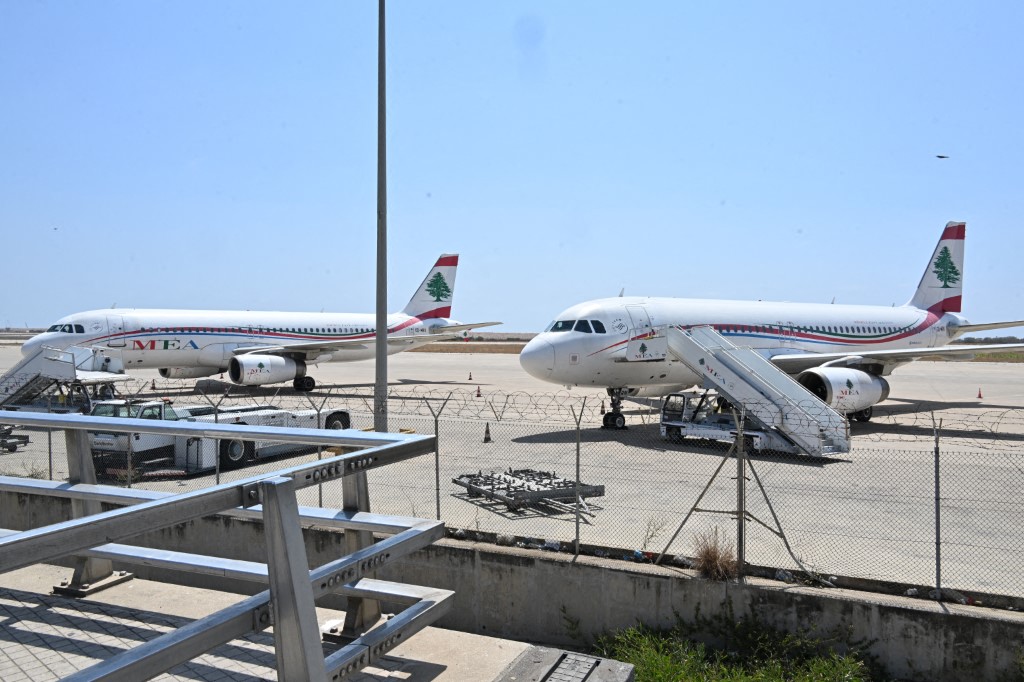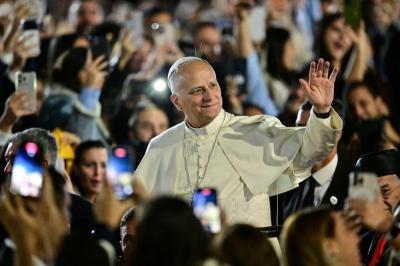History often repeats itself, whether in ancient times or in modern Lebanon.
In 2005, as Lebanese citizens lived through the “sacred rage” following the assassination of former Prime Minister Rafik Hariri, and eagerly awaited the historic withdrawal of the Syrian army after three decades of occupation, I wrote the following:
“The moves of U.S. Ambassador Jeffrey Feltman—focused on parliamentary elections, their laws, conditions, and atmosphere—annoyed the so-called pillars of the state of law and institutions, busying themselves with completing the construction of that very state.
‘Annoyance’ was expressed by the heads of Parliament and government, but it did not diminish the ‘joyful unease’ of ministers and MPs who welcomed His Excellency. They put on their broad smiles for the cameras, cheerfully escorted him to the door, and lived in hopeful anticipation of his next visit.
That official ‘annoyance’ followed a government directive sent to all Arab and foreign ambassadors—targeting Feltman specifically—urging adherence to diplomatic protocols. Yet, the ambassador brushed it aside, convinced he was simply carrying out his duty.
And so, if these guardians of the ‘state of law and institutions’ were truly so upset by the ambassador’s actions, why not simply expel him? In plain, colloquial Arabic: kick him out!”
What I wrote 20 years ago applies today. Then, U.S. interference in Lebanon was blatant. Today, it is outright tutelage. Back then, it was a protest. Today, it has become submission: “At your command, Uncle Sam.”
Yesterday, too, we hosted Iranian official Ali Larijani, who met with the president, the speaker of Parliament, the prime minister, and "Hezbollah’s” secretary general. Many Lebanese officials objected to his visit, especially as it followed a series of statements by Iranian officials rejecting any move to disarm "Hezbollah," a stance seen as blatant interference in Lebanese affairs.
Our foreign minister even opposed the visit, though a representative from his ministry was part of the official welcoming delegation at the airport’s VIP lounge. Asked about the minister’s refusal, Larijani replied: “I simply didn’t have the time to meet him.” The minister shot back: “Even if I had the time, I would not have met him.”
To the minister, a reminder: diplomatic protocol is not optional. As poet Said Akl wrote in his epic Qadmus: “Do not say ‘my nation’ while conquering the world / We are neighbors to all peoples, kin to all nations.” Lebanon is neighbor and kin to all—except Israel. Our duty is to preserve good relations with all countries, even when disagreements arise. Disputes are best resolved through engagement, not avoidance, sulking, or the childish bravado of playground chants.
And another reminder, minister: you are a government official tasked with executing state policy, not a party apparatchik obeying sectarian instructions. Did you not notice the images of Larijani at Baabda Palace, smiling and relaxed as he listened to the president tell him what needed to be said about Iran’s interference? The president was dignified, the guest cordial. Did you also overlook the photo from the Grand Serail: while the prime minister’s official photographer captured a grim expression, another image—likely from the Iranian delegation—showed the prime minister warmly clasping Larijani’s hand in a gesture reserved for close friends.
So, Mr. Minister, you face two choices. Either respect diplomatic norms and avoid selective outrage—condemning the “speck” in one actor’s eye while ignoring the “beam” in your own, since Lebanon’s sovereignty cannot be applied with double standards. In that case, follow your government’s instructions without grandstanding.
Or, if Iran is indeed a “friendly” country with which Lebanon has maintained relations for decades—under the Shah or the Islamic Republic—then raise the issue at the Cabinet table. Reject Tehran’s interference and demand action: recall Lebanon’s ambassador from Tehran, declare Iran’s envoy persona non grata, downgrade relations, or cut ties altogether. In short, push for the Iranian ambassador’s expulsion and bar future visits by Iranian officials.
Kick him out, Mr. Minister, if you dare… otherwise, stop pretending you can.
Please post your comments on:
comment@alsafanews.com
 Politics
Politics













